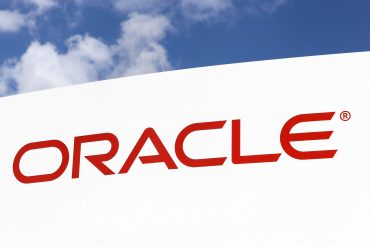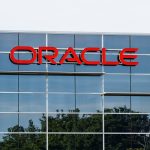
- AI Infrastructure
- Cloud Backlog
- Enterprise AI
Oracle Stock Soars 40% as AI Cloud Backlog Hits $455 Billion
6 minute read

Oracle cloud computing revenue surges amid unprecedented AI infrastructure deals with tech giants like OpenAI and Meta
Key Takeaways
- Oracle stock surges 40% in single session after revealing $455 billion in remaining performance obligations, marking the company’s best trading day since 1992 and pushing market cap toward $1 trillion.
- Cloud backlog jumps 359% year-over-year driven by major AI infrastructure deals with OpenAI, Meta, and xAI, with Oracle adding roughly $300 billion in incremental orders in three months.
- Larry Ellison becomes world’s richest person as his net worth increases by approximately $100 billion following Oracle’s historic stock surge and strategic AI pivot.
Introduction
Oracle delivers one of the most spectacular single-day stock performances in tech history, with shares surging as much as 40% following extraordinary cloud infrastructure demand figures. The enterprise software giant reported $455 billion in remaining performance obligations, a staggering 359% increase from the previous year that caught Wall Street completely off guard.
This remarkable surge positions Oracle on the cusp of joining the trillion-dollar market cap club, with its valuation jumping by $264 billion to reach $941 billion in a single trading session. The dramatic move represents Oracle’s successful transformation from a legacy database company into a critical player in the artificial intelligence infrastructure race.
Key Developments
Oracle’s unprecedented backlog growth stems from a series of multi-billion-dollar AI infrastructure contracts secured over the past quarter. The company added roughly $300 billion in new orders within three months, far exceeding analyst expectations of $180 billion in remaining performance obligations.
CEO Safra Catz reveals that Oracle expects booked cloud orders to exceed half a trillion dollars soon, with several new multi-billion-dollar deals in the pipeline. The company’s agreement with OpenAI alone involves supplying 4.5 gigawatts of data center capacity valued at approximately $30 billion annually as part of the collaborative “Stargate” project.
Oracle now leads the industry in remaining performance obligations, surpassing Microsoft’s $368 billion, Amazon’s $189 billion, and Google’s $108 billion. This positioning marks a dramatic shift for a company that was previously viewed as trailing behind cloud computing leaders.

Market Impact
The stock’s extraordinary performance creates immediate ripple effects across the technology sector, with Oracle experiencing its best trading day since the early 1990s. Trading volume exceeds normal levels by significant margins as investors rush to capitalize on the AI infrastructure opportunity.
Oracle’s cloud infrastructure division reports revised growth projections from 70% to 77% year-over-year, with expected revenues reaching $18 billion for the current fiscal year. The company projects aggressive expansion to $32 billion, $73 billion, $114 billion, and $144 billion in subsequent years through 2030.
The surge positions Oracle stock up 102% year-to-date and 116% over the past 12 months, with retail sentiment reaching “extremely bullish” territory across trading platforms.
Strategic Insights
Oracle’s transformation highlights the critical importance of AI infrastructure capacity in the current technology landscape. The company benefits significantly from its access to Nvidia GPUs and strategic partnerships with leading AI companies, positioning itself as an essential enabler of artificial intelligence workloads.
Multi-cloud initiatives and partnerships with Amazon, Microsoft, and Google enhance Oracle’s credibility and market reach as enterprises demand interoperable cloud solutions. This collaborative approach represents a strategic shift from traditional competitive positioning to ecosystem participation.
However, concentration risk emerges as a key concern, with OpenAI potentially accounting for a significant portion of Oracle’s future revenues. The company commits to $35 billion in capital expenditure primarily for data center development, raising questions about margin sustainability amid fierce price competition.

Expert Opinions and Data
“This is a very historic kind of print right here from Oracle with this backlog,” states Ben Reitzes, technology research head at Melius Research. “The Street was looking for about $180 billion in RPO, and they’re talking about a multiple of that. That is astounding.”
Deutsche Bank analysts describe Oracle’s results as “truly awesome,” maintaining a buy rating while raising the price target to $335 from $240. “In our near 20 years covering Oracle and the Software industry, few quarterly results match F1Q both in magnitude of revision and clarity,” they note.
D.A. Davidson’s Gil Luria calls the performance “absolutely staggering,” while Wells Fargo hails it as a “momentous confirmation” of AI trade dynamics. Bank of America analysts upgrade the stock to buy from neutral, citing Oracle’s “exceptional backlog” as proof of its role as a “key AI enabler.”
Conclusion
Oracle’s record-breaking surge represents a watershed moment for both the company and the broader technology industry’s artificial intelligence transformation. The dramatic backlog growth validates Oracle’s strategic pivot toward AI infrastructure and positions the company as a central player in the cloud computing ecosystem.
While questions remain about profitability sustainability and customer concentration risks, Oracle’s current momentum demonstrates the massive market opportunity in AI infrastructure services. The company’s ability to secure multi-billion-dollar commitments from leading AI firms establishes its credibility as an essential infrastructure provider in the artificial intelligence era.








